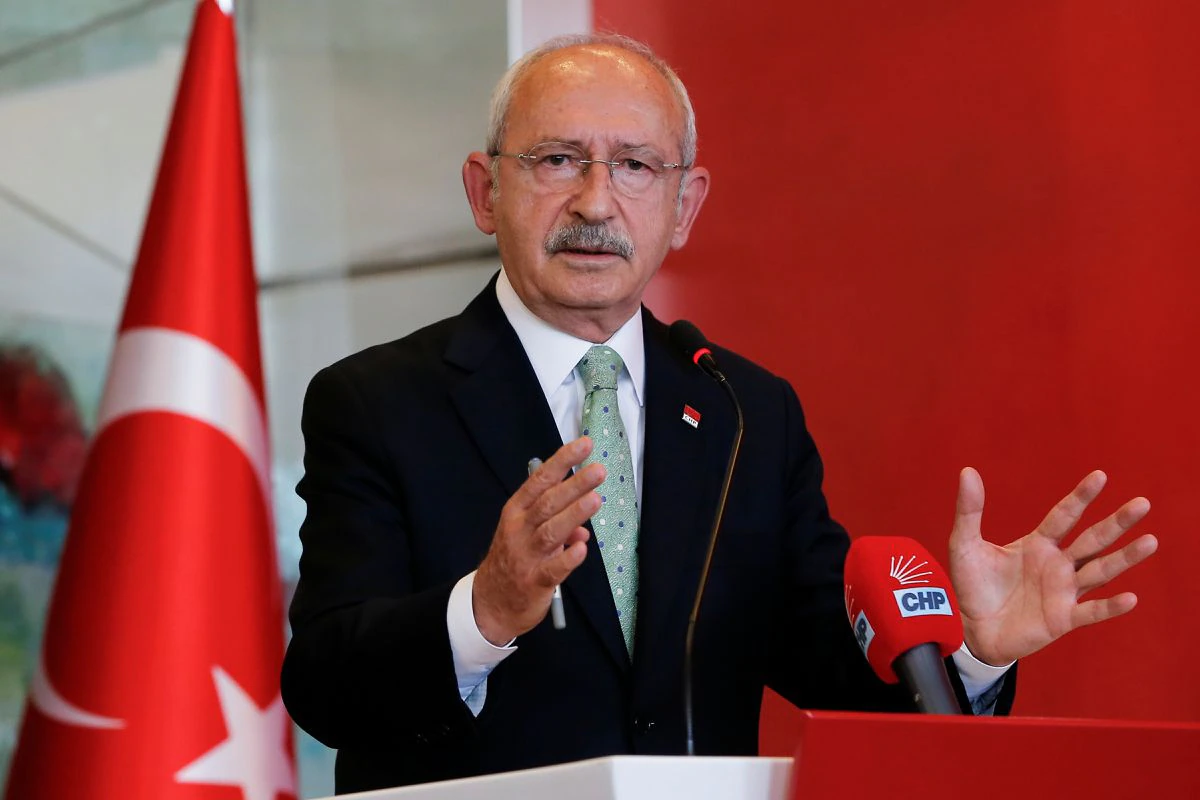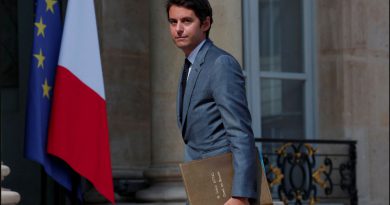Turkey’s opposition leader looks to emerge from Erdogan’s shadow
Reuters
Yet Kilicdaroglu and other critics of the country’s authoritarian and Islamist drift sense their time may have come.
A veteran Turkish political leader who has struggled for years to have President Tayyip Erdogan voted out of office says it is “very clear” that his dream is drawing nearer, even as doubts remain about whether he will be the main opposition candidate at presidential elections set for 2023.
In an interview, Kemal Kilicdaroglu, leader of the main opposition Republican People’s Party (CHP), confidently predicted victory at the polls as Turkey suffers economic hardships brought on by Erdogan’s unorthodox monetary policies.
The comments reinforce expectations Kilicdaroglu, 73, will be the presidential candidate of a six-party alliance in elections due by June 2023, though polls show several other opposition figures winning more support. L1N2UR0I1
“Of course, five party leaders pronouncing me as candidate would be an honour. It also means they have trust,” he told Reuters in his office on the 12th floor of the CHP’s headquarters on the outskirts of Ankara.
The six anti-Erdogan party leaders would discuss their candidate later, but first need to agree on economic, social and other policies for their joint platform. It is “very obvious and very clear” that whoever they choose will become president, he said.
Kilicdaroglu said he saw no reason for Turkey’s purchase of Russian S-400 missiles that caused a rift with Washington. He also said he would overhaul the central bank’s leadership if elected.
A former economist and civil servant who lacks the president’s fiery charisma, Kilicdaroglu has lingered in Erdogan’s shadow as the CHP, which he has chaired since 2010, suffered repeated defeats. Erdogan’s favourite target, he has stoically absorbed near daily criticism and even scorn from the man who has dominated the country for nearly two decades.
Yet Kilicdaroglu and other critics of the country’s authoritarian and Islamist drift sense their time may have come.
Erdogan’s polls have slid to multi-year lows after his unorthodox interest rate cuts sparked a currency crisis late last year, which in turn sent living costs soaring and deepened poverty especially among the president’s working class base.
The opposition bloc includes nationalists, liberals and conservatives – though not parliament’s third-biggest party, the pro-Kurdish People’s Democratic Party.
Can Selcuki of Istanbul-based pollster Turkiye Raporu said Kilicdaroglu has grown “bolder and more aggressive”, showing his determination to be the bloc’s candidate. But he remains the “weakest nominee” of the opposition hopefuls and unless his support grows, Selcuki predicted he could still pull out before the vote.
Bespectacled and low-key, Kilicdaroglu earned the nickname “Gandhi Kemal” for his style, and for strategies such as his vow this month not to pay electricity bills in protest at price hikes in the face of near 50% inflation.
CHP parliamentarian Utku Cakirozer said Kilicdaroglu’s ability to build alliances was key to broadening the opposition platform. “He is open to building bridges with different parts of society,” he said.
Though the opposition bloc has not named a presidential candidate, surveys by Metropoll show Kilicdaroglu is far less popular, at 28.5%, than three other possible names and than Erdogan himself, who 37.9% said they preferred in December.
Ankara Mayor Mansur Yavas and Istanbul Mayor Ekrem Imamoglu, both of the CHP, had popularity of 60.4% and 50.7% respectively, while IYI Party leader and alliance bloc member Meral Aksener had 38.5%. A previous Metropoll survey showed Kilicdaroglu was the only potential candidate whom Erdogan would beat.
“These surveys are of no importance for today,” Kilicdaroglu said, adding that Yavas and Imamoglu would continue running the country’s two biggest cities.
Soaring prices recently – including 50% increases for electricity and 55% for food – have pushed more Turks into poverty.
The central bank is widely seen to have bowed to Erdogan after he replaced its monetary policy committee with like-minded members. Asked whether he would replace the committee to give it independence, Kilicdaroglu said: “We would do exactly that.”
Russian S-400s, Syria
Ankara’s purchase of Russian S-400 land-to-air defences badly strained U.S. relations, prompting Washington to sanction Turkey’s defence industries and oust it from an F-35 production scheme.
“Who will we use the S-400s for? We haven’t received the answer to this question yet,” Kilicdaroglu said. “A large amount of money was paid, and they are currently waiting in storage.”
Erdogan has said Turkey is keeping the missiles despite U.S. objections and the possibility of selling them.
Turkey will send home the millions of Syrian refugees it hosts and re-establish diplomatic ties with President Bashar al-Assad if the opposition alliance wins the elections, Kilicdaroglu said.
“If needed the United Nations needs to get involved, a 100% guarantee should be received from Assad. That guarantee needs to be tied to international accords, that he will not attack them, that their material and life security will be preserved,” he said.



